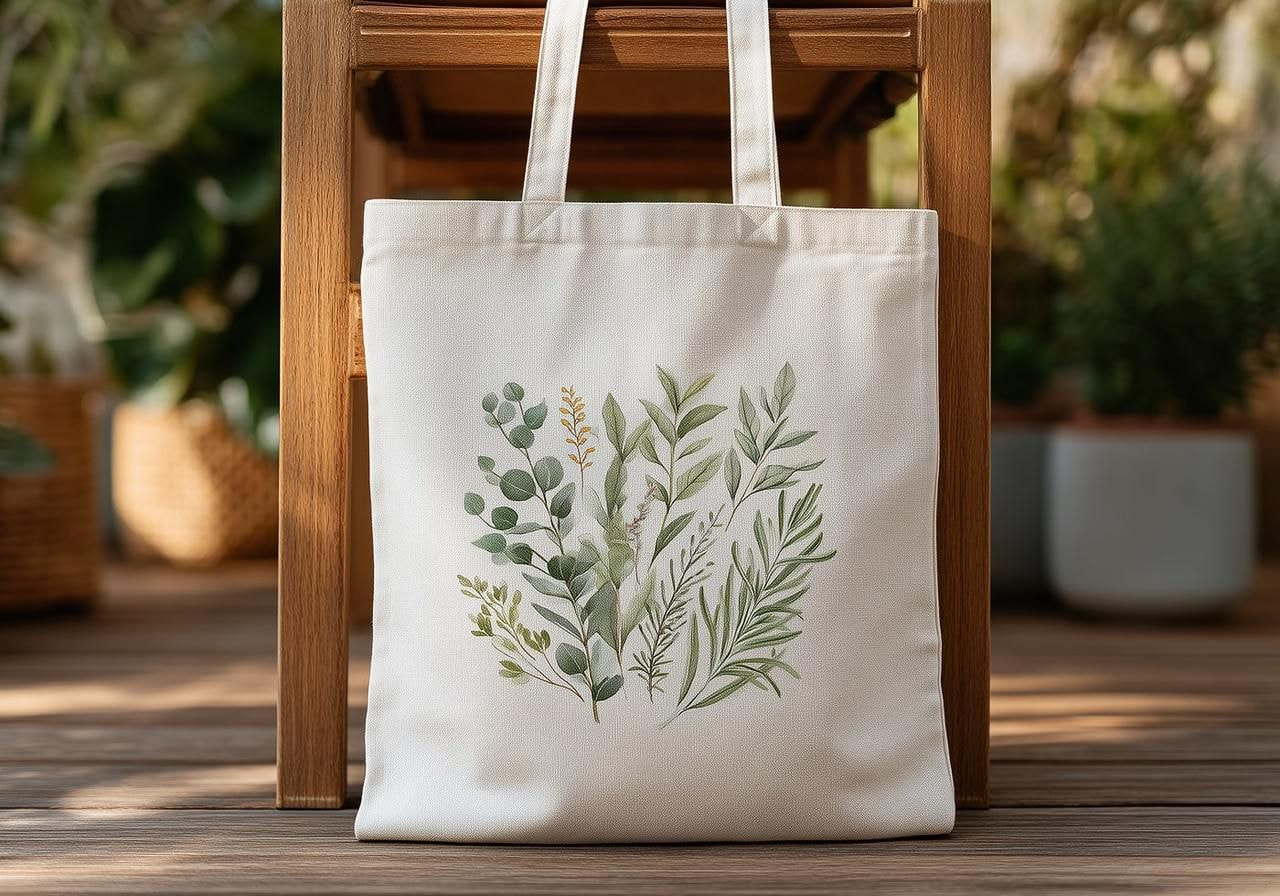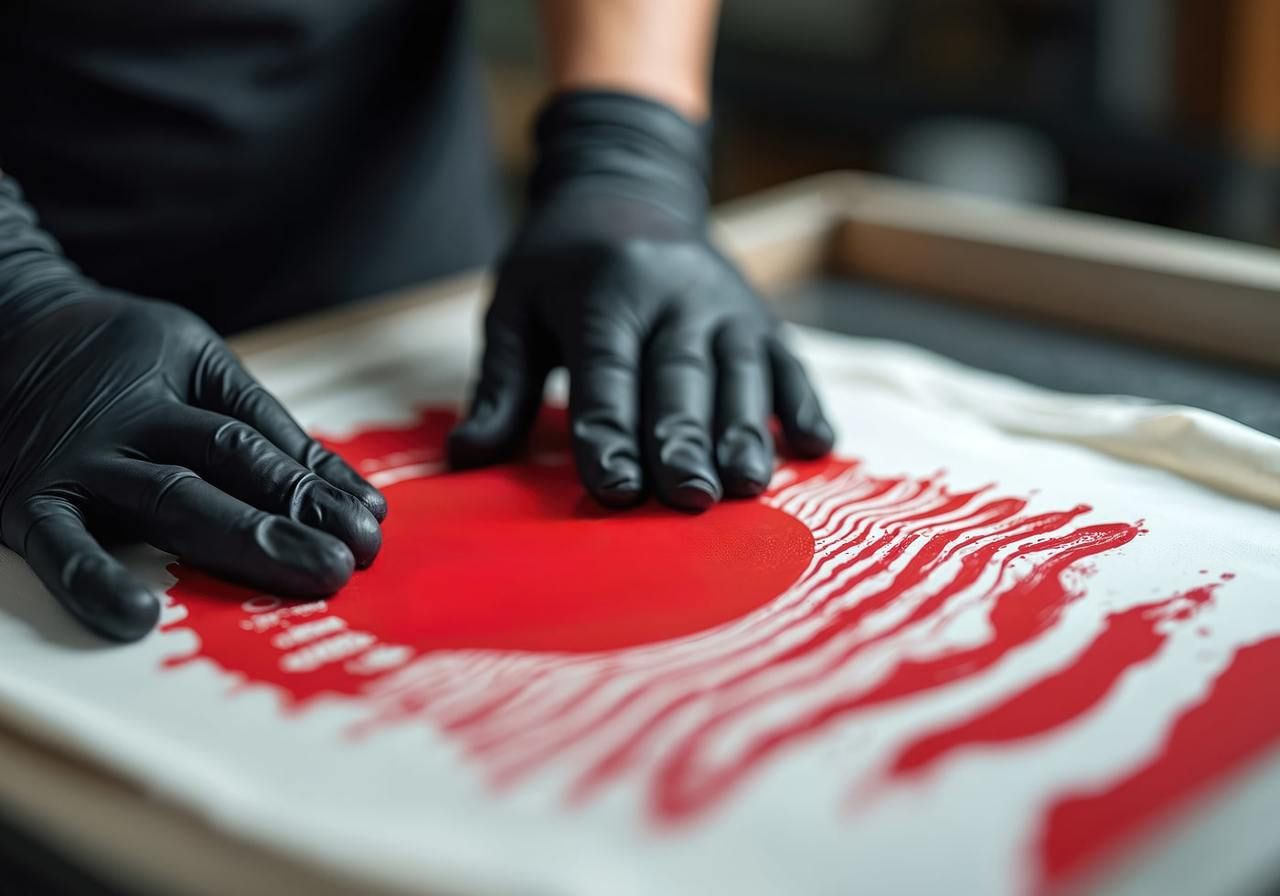Table of contents
Building a successful eCommerce business isn’t about selling everything – it’s about owning a profitable niche. Whether you’re doing Print on Demand, wellness gadgets, or pet accessories, finding your lane means less noise, more focus, and higher margins.
We’ll break down the most profitable eCommerce niches in 2026, and show you how to spot what’s worth your time, money, and attention.
Top eCommerce niches to watch in 2026
Not all categories in the eCommerce space are worth pursuing. This list spotlights the most profitable eCommerce niches backed by market data and real growth indicators.
These examples of niches show increasing demand among a clear target audience, giving you space to build a business that lasts.
1. Personalized and custom products

The print-on-demand model continues to dominate niche eCommerce business markets, powering thousands of online businesses that want flexibility without the upfront costs of traditional retail.
Personalization remains a proven driver of sales – shoppers pay more for products that feel one-of-a-kind.
From custom pillows and engraved jewelry to photo mugs and embroidered hoodies, personalized products let sellers test designs, scale quickly, and serve a dedicated target audience.
With no inventory to manage and fulfillment handled automatically, POD is one of the easiest ways to launch a niche store that reaches a global market.
Fun niche examples:
-
Pet owners – Custom bowls, engraved collars, and personalized pet products
-
Home decor fans – Custom photo pillows, woven wall hangings, and unique prints
-
New parents – Personalized baby blankets, nursery art, and milestone keepsakes
-
Hobbyists – Personalized apparel and creative gifts tailored to niche communities


2. Sustainable micro-niches

The rise of eco-friendly products isn’t slowing down – but shoppers want real sustainability, not buzzwords. Recycled materials, eco-friendly packaging, and zero-waste fashion are pulling loyal audiences with increasing market demand and significant growth.
Products marketed as sustainable have seen sales rising more than 30% over the past five years. This eCommerce niche gives sellers a chance to stand out by offering a diverse product range that genuinely supports ethical living and transparent production.
Fun niche examples:
-
Zero-waste lifestyle kits – Refillable soap dispensers, compost bins, bamboo cutlery
-
Sustainable fashion niche – Organic cotton athleisure, recycled tote bags
-
Eco-friendly products for home – Upcycled candles, biodegradable planters, woven rugs made from reclaimed fibers
3. Beauty and clean personal care

The beauty and personal care category continues to surge in market demand, showing no signs of slowing down. Online D2C beauty sales jumped 25% year over year, fueled by conscious consumers who value transparency, clean ingredients, and sustainable packaging.
While the broad niche of cosmetics is crowded, specific niches like refillable skincare, cruelty-free formulations, and minimalist beauty lines continue to grow fast.
Read more: Sell skincare under your brand
These health and wellness products attract loyal buyers, build trust, and encourage repeat purchases through consistent quality and authentic branding.
Fun niche examples:
-
Refillable deodorants and shampoo bars – Sustainable essentials that keep customers coming back
-
Plant-based skincare for sensitive skin – Gentle, transparent formulas with strong niche loyalty
-
Solid perfumes and lip balms – Compact, eco-friendly items ideal for eCommerce shipping and gifting
-
Branded self-care gift sets – Combine several products for private-label, ready-to-ship collections
4. Pet products and specialty pet health

The pet products market is booming, and it’s not slowing down anytime soon. The global pet supplements sector alone is projected to exceed $3 billion by 2030, reflecting steady growth as pet owners want the best for their furry companions.
This once-narrow segment has evolved into a highly profitable niche within the broader market, offering ample room for new eCommerce brands to profit.
From nutrition-focused pet products to comfort-driven accessories, sellers can stand out in a competitive market by offering high-quality, custom items designed to enhance pets’ lives.
Fun niche examples:
-
Organic pet snacks and supplements – Functional treats focused on health and longevity
-
Designer leashes and cozy apparel – Stylish essentials for fashion-forward pet owners
-
Eco-friendly beds and blankets – Durable comfort products with sustainable materials
5. Health and wellness products

The health and wellness industry keeps expanding as people prioritize balance, recovery, and mindful living. This profitable niche has increasing demand from a broad target audience seeking products that make healthy routines simple and sustainable.
Brands that blend function with sustainability – from reusable gear to eco-friendly products – capture trust and repeat customers.
The health and wellness market is great for up-and-coming brands that combine practical design with emotional value, making it a reliable category for long-term eCommerce growth.
Fun niche examples:
-
Yoga mats and reusable water bottles – Daily essentials that align with mindful lifestyles
-
Functional foods and nootropic snacks – Energy boosters for wellness-focused consumers
-
Meditation accessories and essential oils – Small, calming items perfect for online sales
6. Smart home and lifestyle decor
The traditional home and living category is far too broad. Real success lies in focused micro-categories that blend comfort, design, and convenience. Recent industry developments show how home automation, sensory design, and wellness-focused interiors have reshaped consumer expectations.
This is a profitable niche with loyal buyers willing to pay premium prices for smarter living spaces and better experiences.
For eCommerce sellers, smart home and lifestyle decor offers steady, high profit margins and a defined target audience – modern professionals and homeowners who invest in comfort-driven upgrades and tech-enhanced living.
Fun niche examples:
-
Smart lighting and ambient lamps – Merge style, mood, and energy efficiency
-
Aromatherapy diffusers and air purifiers – Wellness-inspired decor for mindful homes
-
Weighted blankets and ergonomic seating – Cozy essentials with luxury appeal
7. Athleisure and home fitness equipment

Performance meets comfort in this fast-growing eCommerce niche. As remote work continues and wellness becomes part of daily life, shoppers are investing in fitness apparel and gear that support both their physical and mental health.
Global online retail spending in health, fitness equipment, and lifestyle categories is expected to climb steadily to reach a whopping $34 billion by 2026.
The strongest opportunities lie in specific niches that merge style, practicality, and sustainability. From compact home-training tools to sustainable products made with recycled fabrics, sellers can tap into a loyal audience that values function and self-care over flash.
Fun niche examples:
-
Resistance bands, compact dumbbells, and yoga gear – Easy-to-ship workout essentials for small spaces
-
Eco-friendly products – Activewear and accessories made from sustainable materials
-
Branded gym towels and recovery kits – Customizable merch for fitness coaches and wellness brands
8. Resale and refurbished electronics
Sustainability now drives innovation in one of eCommerce’s most profitable niches – the resale and refurbished tech market. Shoppers want value but also want to make responsible choices, pushing brands to combine affordability with environmental awareness.
Thanks to rapid technological advancements, certified pre-owned devices now perform like new, making refurbished tech one of the most trusted categories online.
With high demand for quality gadgets at lower prices, this space attracts both budget-conscious consumers and eco-minded buyers, creating opportunities for sellers to build recurring revenue without manufacturing from scratch.
Fun niche examples:
-
Refurbished headphones, tablets, and gaming consoles – Reliable alternatives at a fraction of the cost
-
ReCommerce stores for vintage audio gear – Nostalgia meets sustainability
-
Trade-in and buyback programs – Turn old devices into inventory for resale
9. Functional foods and specialty beverages
Food is no longer just fuel – it’s a lifestyle driver within the health and wellness niche. According to Google Trends, searches for functional and clean-label foods have steadily climbed, proving this high-demand category is worth tapping into.
These niche markets – from adaptogenic tonics to protein snacks and low-alcohol drinks – appeal to consumers seeking performance, recovery, and balance in their daily routines.
Brands that invest in authentic storytelling and smart marketing campaigns can grow fast, especially when pairing great flavor with health benefits.
With social media buzz and influencer partnerships fueling discovery, functional foods have become a profitable niche that connects wellness with everyday essentials.
Fun niche examples:
-
Adaptogenic mushroom coffee blends – Natural energy without the crash
-
Protein-packed snacks for active lifestyles – Clean nutrition for busy professionals
-
Kombucha or low-sugar mocktail brands – Refreshing, wellness-forward alternatives to traditional beverages
10. Gaming and creator economy products

Gamers and content creators have turned passion into business, and their audiences into reliable niche markets. This sector has massive demand, with players constantly seeking ergonomic gear, branded merchandise, and tools that elevate their setup or stream.
What sets it apart is the built-in loyalty – communities follow, buy, and support through subscription services, Patreon-style memberships, and exclusive drops.
Smart audience targeting is crucial. Keyword research tools like Google Trends or Ahrefs help identify what’s trending, whether that’s a new streaming accessory or collectible merch.
With the right niche strategy, creators can turn small fandoms into eCommerce brands that thrive long term.
Fun niche examples:
-
Custom streaming accessories – Mousepads, desk mats, and camera lights for content creators
-
Sustainable products for gamers – Apparel, drinkware, or merch made with recycled materials
-
Membership boxes and exclusive drops – Recurring subscription services that reward loyal fans
Related: Design video game merchandise


How to pick the right niche for your eCommerce business

Finding your perfect niche strategy isn’t about guessing what might sell – it’s about studying market trends, testing ideas fast, and building something that fits your skills and interests.
The most successful founders combine passion with data, transforming their creativity into profitable niches that last.
Whether you’re selling eco-friendly products, print-on-demand apparel, or fitness equipment, your goal is to identify a gap in a competitive market and fill it with something people genuinely want.
Step 1: Self-assessment
Start by looking at your interests, experience, and intended audience. What do you care about enough to stay consistent for years? That’s your starting point.
If you’re passionate about mental health, explore online coaching or health and wellness accessories. If design excites you, test print-on-demand home decor or apparel.
Helpful tools:
-
Notion or Miro – Map your interests, skills, and ideas visually
-
ChatGPT – Brainstorm niche product ideas or customer segments based on your expertise
-
Google Trends – Compare search volumes for niche ideas to find consistent or rising interest
-
Reddit or Quora – Analyze discussions to understand real pain points in your target community
Example:
If you’re a yoga instructor, you can launch an eco-friendly online store selling POD mats, reusable water bottles, and motivational apparel.With your expertise, you already understand the target audience and can use your coaching content to drive sales.
Step 2: Cost vs profit vs risk
Before committing to a concrete plan, break down your potential earnings and expenses. Estimate product cost, marketing budget, and realistic conversion rates. Assess how much cash flow you’ll need to sustain growth in a saturated market.
Helpful tools:
-
Google Keyword Planner or Ahrefs – To gauge product search volume and competition
-
Semrush – To find keyword opportunities and market demand within your category
-
Shopify Profit Margin Calculator – To estimate your profit margins before launching
-
Google Sheets – To simulate sales targets, cost of goods, and ad spend
Example:
Say you’re an entrepreneur exploring two ideas – sustainable skincare and fitness accessories. Keyword research shows skincare has high search volume but fierce competition, while resistance bands and recovery tools show lower competition but strong growth.Use the data to help you choose the most profitable niche based on your goals and resources.
Step 3: Supply chain and fulfillment

Behind every thriving online store are reliable production and fulfillment partners, helping turn a good idea into a lasting business.
If you’re focused on eco-friendly products or wellness goods, choose a partner that shares your values and maintains consistent quality. Fast, predictable delivery builds trust and drives repeat purchases – the backbone of long-term success.
Helpful tools:
-
Printful – For print-on-demand fulfillment without inventory or upfront costs
-
Spocket or Modalyst – For integrating curated dropshipping suppliers
-
Google Sheets and Zapier – For tracking orders, automating data, and keeping operations lean
Example:
A seller offering fitness accessories and apparel partners with Printful to create branded custom products.With automatic order fulfillment and real-time tracking, business owners maintain quality, cut shipping times, and deliver a seamless customer experience that strengthens their brand reputation.
Step 4: Test before scaling
Start small, learn fast. Launch a limited set of designs or products to test market demand, collect feedback, and refine your messaging before investing heavily.
Use A/B testing for your ad campaigns and product pages to see what converts best.
Helpful tools:
-
Shopify Starter Plan – Test your product idea without building a full website
-
Canva Pro – Design quick mockups for ads or social media
-
Meta Ads Manager and TikTok Ads – Run low-budget audience tests
-
Google Analytics and Hotjar – Measure behavior, bounce rates, and conversions
Example:
A creator is testing branded yoga gear with Print on Demand.They launch three designs on social media, track engagement, and analyze conversion rates. The top-performing design becomes the foundation for their full product line.
Start your eCommerce business with Printful

Printful lets you explore any niche and tap into growing demand without risk.
Step 1: Sign up and set up your store
Register and create your free Printful account to start building your niche eCommerce business. Connect your online marketplace, like Shopify, Etsy, TikTok Shop, or Amazon, and prepare to sell worldwide with zero upfront investment.
Step 2: Pick your products
Browse our extensive Catalog of personalized products, from apparel to home decor. Use your market research to identify trends and choose items that match your target audience. This will help you establish a strong brand identity from the start.
Step 3: Design in minutes
Use the Design Maker to upload artwork, create designs from scratch, and preview your products instantly. Experiment with colors, graphics, or typography and see what resonates with your niche before going live.
Step 4: Market and grow your brand
Once your store is live, run marketing campaigns and see what sells best. Track customer feedback, refine your designs, and focus on building recognition through consistent visuals and storytelling.
Printful handles fulfillment automatically, so you can focus entirely on growth.


Conclusion
Printful makes it simple to turn your idea into a brand. Whether you’re testing emerging trends or scaling a full store, you can launch fast, sell globally, and skip the upfront costs.
Combine your creativity with solid market research to identify opportunities, create personalized products, and build a strong brand identity that stands out in a crowded market.
Build smarter, sell faster, and grow with confidence – your entrance into niche markets starts here.
FAQ
For beginners, low-risk niches like print-on-demand products or eco home decor are the smartest starting points. They require minimal upfront investment, little to no inventory, and allow quick testing.
These niches also give you room to refine your strategy and learn the ropes while building a strong identity over time.
You can start testing a niche with as little as $100 or less using print-on-demand platforms and market research tools. Focus on validating your product idea first – run small ad campaigns, track results, and scale gradually.
Additional costs may involve product samples to ensure you’re offering the best quality to customers.
Keeping costs low with free print-on-demand platforms like Printful helps you experiment freely and find a profitable niche without financial risk.
You can tell if a market is saturated when there are thousands of similar products, minimal pricing differences, and overcrowded ad spaces. Check Google Trends and keyword research tools for insight into market demand and emerging trends.
If engagement and search volume are growing steadily but competition remains moderate, you’ve likely found an untapped niche market.
They can be. Digital products are low-cost, easy to distribute, and simple to update. But physical print-on-demand products often drive higher value and repeat buyers – without the inventory risk of traditional retail.
Combining both – such as digital downloads and matching personalized products – helps balance scalability with customer interest for long-term growth.

Zane is a sharp-witted writer with a deep interest in eCommerce, branding, and creative entrepreneurship. With a knack for blending humor, insight, and no-nonsense advice, she crafts engaging content that helps merchants learn and businesses grow. When she’s not dissecting industry trends, she's exploring philosophy, music, and the perfect balance between solitude and connection.





